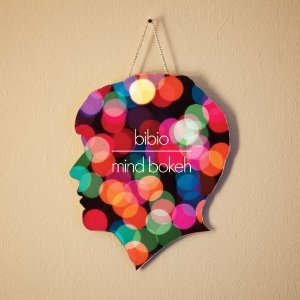Electronic music is a funny thing. When not yielding to dance floor expectations, it is involuntarily tagged with labels such as "IDM", which often lend the music an aesthetic value as an art form or science. With this in mind we come to Mind Bokeh, the fifth full-length album from Stephen Wilkinson, a.k.a Bibio. "Bokeh" is the blur in out-of-focus areas of an image, or "the way the lens renders out-of-focus points of light, fluid, formless, stream-of-consciousness composition." On the strength of this knowledge, it’s feasible to expect that Mind Bokeh would play out as ambient, woozy Boards of Canada-esque loops and sampled vocals. Indeed, opening track, ‘Excuses’ picks off where Ambivalence Avenue left off as it fluently interweaves a bewitchingly glitch and jitters to create a haunting mood that at times suggests a contemporary take on musique-concrete.
Continuing in this vein, ‘Pretentious’ begins with the celestial dissonance of a harp coupled with a plodding electronic pulse and a squelchy funk that slowly winds down and finishes with a calming sax solo. So far, so "bokeh"”. But it is from here onwards where the trajectory falters, taking a turn towards electro-pop territory, abandoning the soft Dilla-esque sounds prevalent on Ambivalence Avenue. ‘Anything New’ incorporates a Washed Out groove with soulful singing, before fracturing into bite size chunks with the addition of flute-like synths. The filtered vocals are played over simple, melodic lines, with lyrics that are more vague than intriguingly ambiguous.
These exotic textures and pop arrangements continue to be employed, and then deconstructed, make it difficult to predict where the record will venture next. This is no preparation, though, for the ugly, intrusive anomaly that is ‘Take off Your Shirt’, a track so bemusingly out of place track that it ends up weakening the entire record. It’s only via ‘Saint Christopher’ that the hypnotic and mysterious moods to reassert themselves. The mood is murky and intimate, sure; even beautiful at times, but unfortunately this is all too fleeting.
In parallel with this disjointed feel to the sequencing, the instrumentation jars, with a try-everything-and-see-what-sticks feel that inevitably further disrupts a tangible lack of cohesion or flow. It’s as if Bibio’s IDM roots have run amuck, and tried to strangle his future growth. As it is, Mind Bokeh is too content to swim in its own world. The tone and pace is so varied it’s hard to tune into the record’s wavelength – which may, after all, be the point – but it makes for an uneven narrative arc. Instead of a record with a blurred and soft "bokeh" feel, Mind Bokeh flits awkwardly between electronic pop and something more awkward, and consequently never finds a home.


